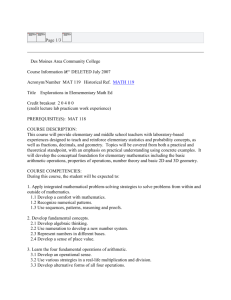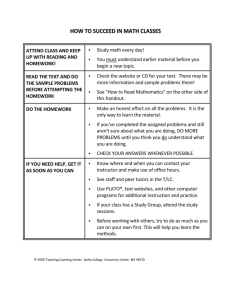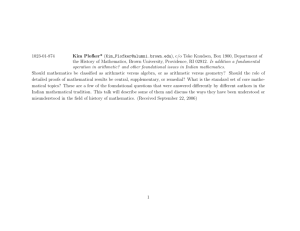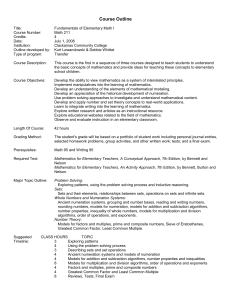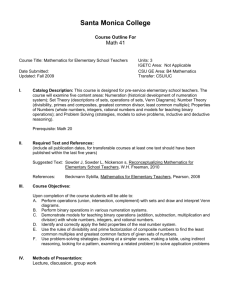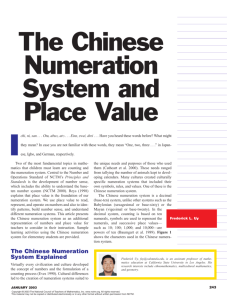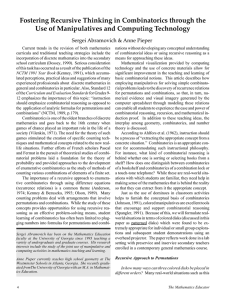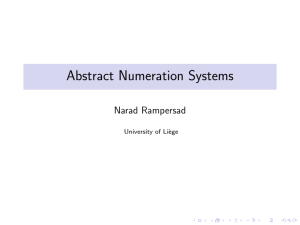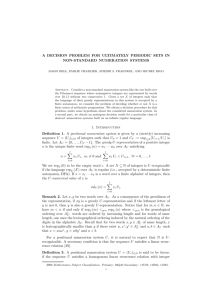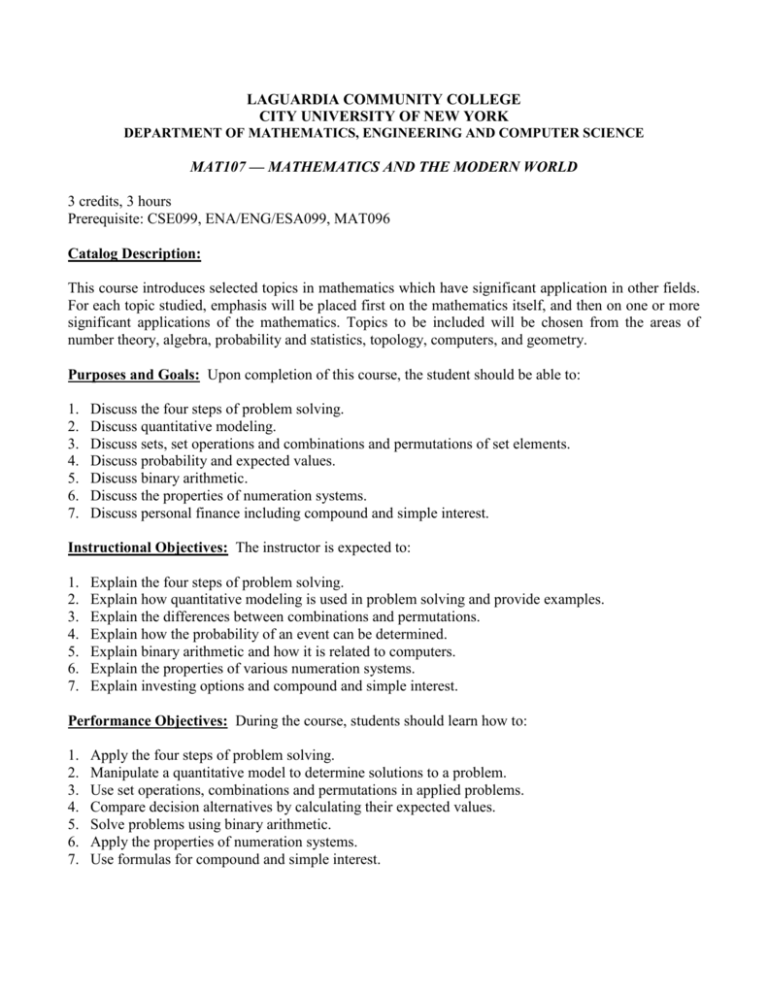
LAGUARDIA COMMUNITY COLLEGE
CITY UNIVERSITY OF NEW YORK
DEPARTMENT OF MATHEMATICS, ENGINEERING AND COMPUTER SCIENCE
MAT107 — MATHEMATICS AND THE MODERN WORLD
3 credits, 3 hours
Prerequisite: CSE099, ENA/ENG/ESA099, MAT096
Catalog Description:
This course introduces selected topics in mathematics which have significant application in other fields.
For each topic studied, emphasis will be placed first on the mathematics itself, and then on one or more
significant applications of the mathematics. Topics to be included will be chosen from the areas of
number theory, algebra, probability and statistics, topology, computers, and geometry.
Purposes and Goals: Upon completion of this course, the student should be able to:
1.
2.
3.
4.
5.
6.
7.
Discuss the four steps of problem solving.
Discuss quantitative modeling.
Discuss sets, set operations and combinations and permutations of set elements.
Discuss probability and expected values.
Discuss binary arithmetic.
Discuss the properties of numeration systems.
Discuss personal finance including compound and simple interest.
Instructional Objectives: The instructor is expected to:
1.
2.
3.
4.
5.
6.
7.
Explain the four steps of problem solving.
Explain how quantitative modeling is used in problem solving and provide examples.
Explain the differences between combinations and permutations.
Explain how the probability of an event can be determined.
Explain binary arithmetic and how it is related to computers.
Explain the properties of various numeration systems.
Explain investing options and compound and simple interest.
Performance Objectives: During the course, students should learn how to:
1.
2.
3.
4.
5.
6.
7.
Apply the four steps of problem solving.
Manipulate a quantitative model to determine solutions to a problem.
Use set operations, combinations and permutations in applied problems.
Compare decision alternatives by calculating their expected values.
Solve problems using binary arithmetic.
Apply the properties of numeration systems.
Use formulas for compound and simple interest.
Attendance:
Students are expected to attend all class meetings. Students are also responsible for demonstrating
engagement in on-line homework activities. Students are held responsible for all notes, announcements,
and materials whether or not they have attended the class. Students should consult the college catalog to
find out the terms and conditions under which a WU, an Incomplete, or an F grade may be given by the
instructor.
Textbook:
Title: Thinking Mathematically (6th edition)
Author: Robert Blitzer
Publisher: Pearson Prentice Hall
ISBN-10: 0321867327
Evaluation:
Quizzes, Midterm Exam,
Homework, Projects
Final Examination
40%
30%
30%
The following sections and topics are suggested and may be modified by the instructor.
Topic(s)
Polya’s Four-Step Method for Problem Solving
Quantitative Modeling
Text Readings
Section 1.3 and Handouts
Algebraic Models
Sections 6.1 - 6.3, 7.1, 8.1
Network Models
Sections 14.1, 14.2, 14.4
Counting, Probabilities and Expected Values
Sections 11.1 – 11.4, 11.8
Decision Tree Models
Midterm Exam
Handouts
Simulation Models
Number Systems, Logic and the Math of
Computers
Handouts
Sections 4.1 - 4.3,
3.1 - 3.4
Personal Finance
Sections 8.2 – 8.5
Spreadsheets for Modeling and Computation
Handouts
Additional Topics
Final Exam Administered During Final Exam Week

